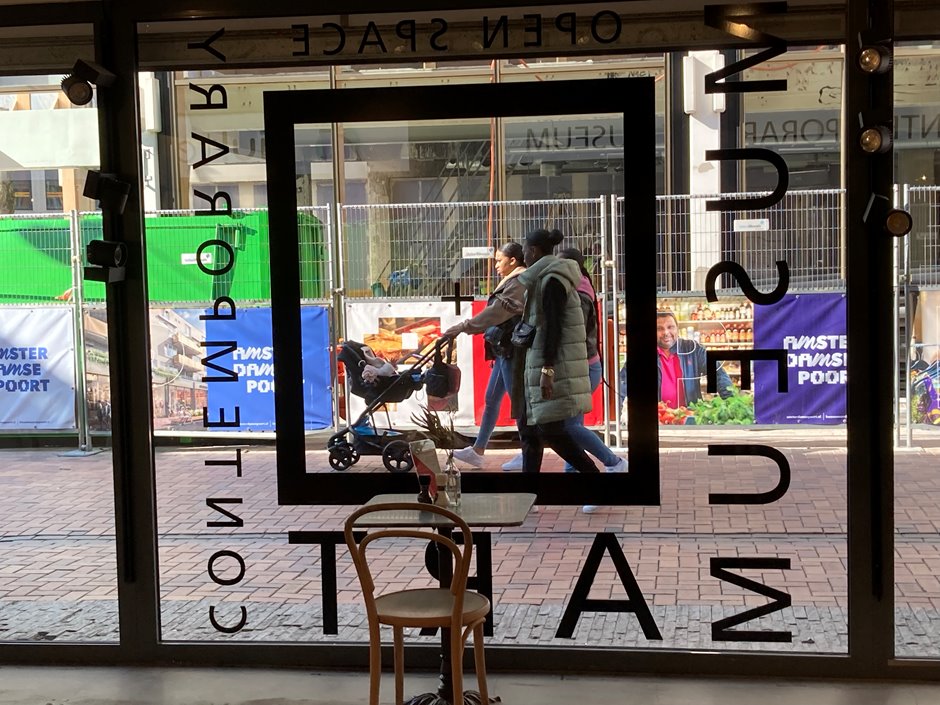OSCAM is a rare kind of museum. In the heart of Amsterdam Bijlmer, its large front is completely open. Everyone can walk in, free of charge (or for a donation), to watch the expositions or order a coffee or tea from the friendly hosts at the small counter.
The museum’s founder, Marian Duff, is also of a typical kind. She jumps from one project to the next, always puts her ideas immediately into practice, and leaves a trail of eagerness and passion. She started her career in journalism, as city reporter for Amsterdam’s local newspaper Het Parool. When she interviewed the retired soccer player Winston Bogarde about his new event agency, she was instantly invited to come and work for him. Duff started working with artists from all over the world and ended up at Amsterdam Fashion Week, which turned out to be a white and Western bastion. ‘Both on stage and behind the scenes, I could not find a single person who looked like me.’
From fashion to museum
This prompted Duff to start organising her own fashion events, around the theme of cultural diversity. She organised “fashion battles” between designers. First within Amsterdam South-East, then between cities and eventually even countries. ‘But in the end, I missed a clear focus; it had to be about something.’ And so, the battles were linked to museums, such as Amsterdam Museum, Museum Van Loon and Tropenmuseum. And as you can guess: Duff became triggered by the world of museums and got pulled in. ‘I was asked if I wanted to do something for the fifty-year anniversary of the Bijlmer neighbourhood. That’s how OSCAM was born. Originally as pop-up museum, but by now it has been standing for almost 4,5 years.
